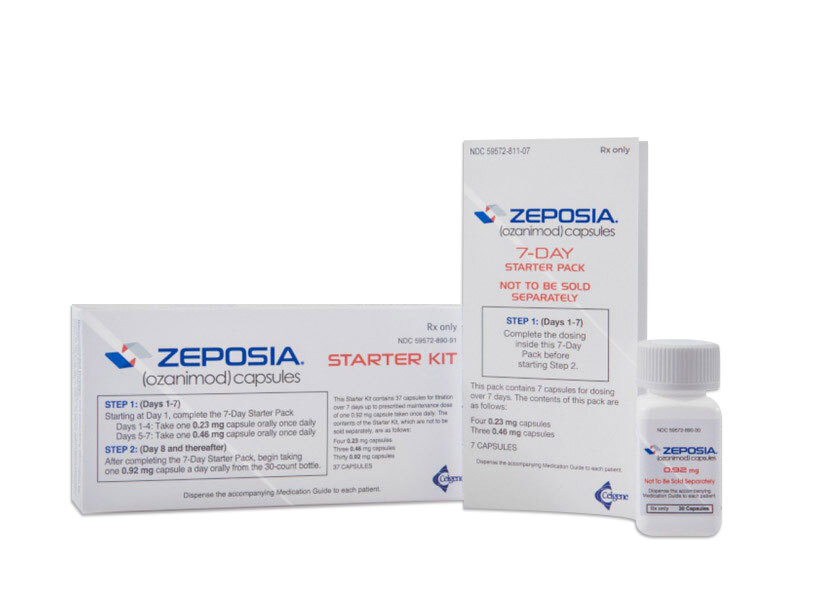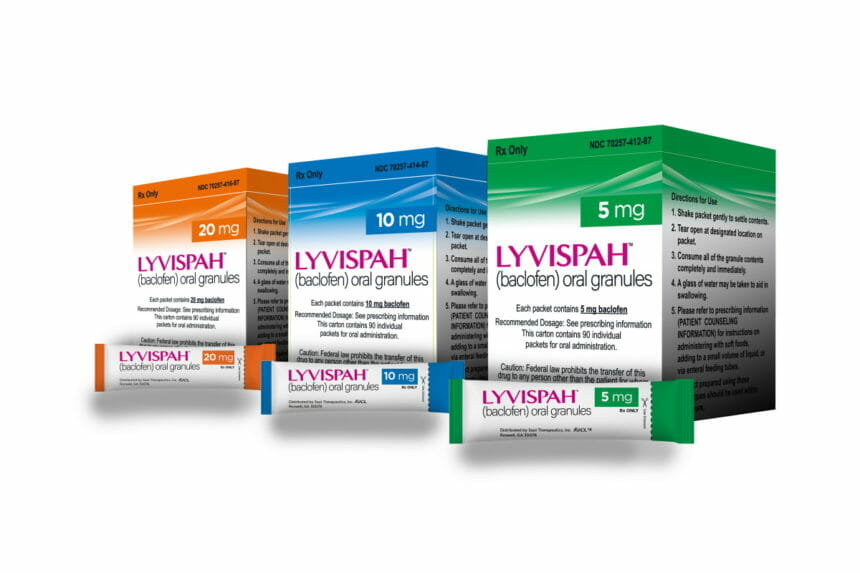Zeposia (ozanimod) vs Lyvispah (baclofen)
Zeposia (ozanimod) vs Lyvispah (baclofen)
Zeposia (ozanimod) is an oral medication approved for the treatment of relapsing forms of multiple sclerosis (MS) and is designed to modulate the immune system to reduce inflammation and neuronal damage. Lyvispah (baclofen) is a medication that is primarily used to treat spasticity from conditions like multiple sclerosis, spinal cord injuries, or other neurological disorders, and it works by acting on the central nervous system to relax muscles. When deciding between Zeposia and Lyvispah, it is important to consider the primary goal of treatment: Zeposia is used to manage the disease course of MS, while Lyvispah is aimed at relieving specific symptoms such as muscle spasticity.
Difference between Zeposia and Lyvispah
| Metric | Zeposia (ozanimod) | Lyvispah (baclofen) |
|---|---|---|
| Generic name | ozanimod | baclofen |
| Indications | Relapsing forms of multiple sclerosis (MS), Ulcerative colitis | Spasticity, Muscle spasm |
| Mechanism of action | Sphingosine 1-phosphate receptor modulator | GABA-B receptor agonist |
| Brand names | Zeposia | Lyvispah, Lioresal, Gablofen |
| Administrative route | Oral | Oral, Intrathecal |
| Side effects | Upper respiratory infection, Liver enzyme elevation, High blood pressure | Drowsiness, Dizziness, Weakness, Fatigue |
| Contraindications | Recent myocardial infarction, Unstable angina, Stroke, Transient ischemic attack, Decompensated heart failure | Kidney dysfunction, Epilepsy, Stroke, Parkinson's disease (caution required) |
| Drug class | Sphingosine 1-phosphate receptor modulator | Antispastic agent |
| Manufacturer | Bristol Myers Squibb | Different manufacturers for generic versions |
Efficacy
Zeposia (Ozanimod) for Multiple Sclerosis
Zeposia, with the active ingredient ozanimod, is an oral medication approved by the FDA for the treatment of adults with relapsing forms of multiple sclerosis (MS), including clinically isolated syndrome, relapsing-remitting disease, and active secondary progressive disease. As a sphingosine 1-phosphate receptor modulator, Zeposia works by trapping certain white blood cells in lymph nodes, preventing them from reaching the central nervous system where they could cause inflammation and damage to nerve cells. Clinical trials have demonstrated that Zeposia can significantly reduce the annual relapse rate in patients with relapsing forms of MS when compared to a placebo. Furthermore, Zeposia has been shown to reduce the number of brain lesions detected by MRI scans, which is a key indicator of disease activity in MS.
Lyvispah (Baclofen) for Multiple Sclerosis
Lyvispah, which contains the active ingredient baclofen, is not primarily approved for the treatment of multiple sclerosis. Instead, it is commonly used off-label to manage symptoms associated with MS, particularly spasticity, which is a common symptom of the disease characterized by stiffness and muscle spasms. Baclofen is a muscle relaxant and an antispastic agent that acts on the central nervous system to relieve these symptoms. The efficacy of baclofen in managing spasticity in MS patients has been supported by numerous studies, which have found that it can lead to improvements in muscle tone, frequency of spasms, and overall patient function and mobility.
It is important to note that while Lyvispah can be effective in managing spasticity in MS patients, it does not have a direct effect on the underlying disease progression or relapse rate. The use of baclofen for the treatment of spasticity in MS is considered off-label, and healthcare providers may prescribe it based on their clinical judgment and patient needs.
Both Zeposia and Lyvispah have been found to improve the quality of life for patients with multiple sclerosis by addressing different aspects of the disease. Zeposia targets the disease course by reducing relapses and new lesions, while Lyvispah helps manage a debilitating symptom of the disease. Patients considering these medications should consult with their healthcare provider to understand the potential benefits and risks, as well as how these treatments may fit into their overall management plan for multiple sclerosis.
Regulatory Agency Approvals
Zeposia
-
European Medical Agency (EMA), European Union

-
Food and Drug Administration (FDA), USA

-
Health Canada

-
Therapeutic Goods Administration (TGA), Australia

Lyvispah
-
Food and Drug Administration (FDA), USA

Access Zeposia or Lyvispah today
If Zeposia or Lyvispah are not approved or available in your country (e.g. due to supply issues), you can access them via Everyone.org.
How it works

Make an enquiry
Choose the medicine you want to buy, answer a couple of questions, and upload your prescription to speed things up. We’ll get back to you within 24 hours.


Make an enquiry
Choose the medicine you want to buy, answer a couple of questions, and upload your prescription to speed things up. We’ll get back to you within 24 hours.


Breeze through the paperwork
We'll guide you through the required documents for importing unapproved medicine, ensuring you have all the necessary information.


Get a personalized quote
We’ll prepare a quote for you, including medicine costs and any shipping, administrative, or import fees that may apply.


Receive your medicine
Accept the quote and we’ll handle the rest - sourcing and safely delivering your medicine.

Some text on this page has been automatically generated. Speak to your physician before you start a new treatment or medication.
Let's talk
If you have any questions, call us or send us a message through WhatsApp or email:
Contact us




